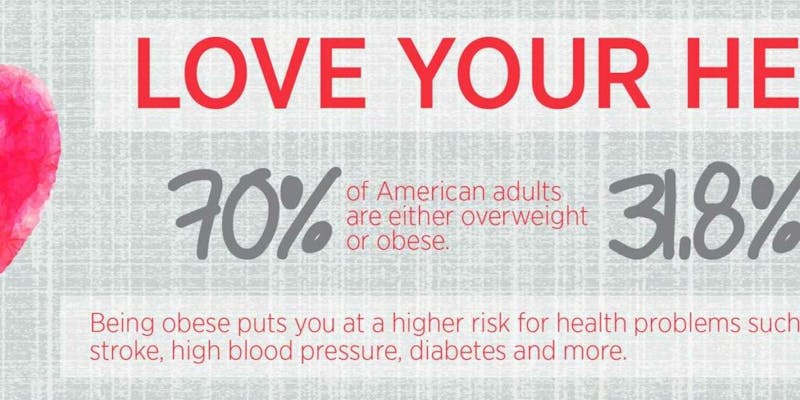
People with a body mass index (BMI) of 30 or higher are considered obese. The term “obesity” is used to describe the health condition of anyone significantly above his or her ideal healthy weight. Don’t be discouraged by the term. It simply means you are 20% or more above your ideal weight, and you are not alone.
Nearly 70% of American adults are either overweight or obese. Being obese puts you at a higher risk for health problems such as heart disease, stroke, high blood pressure, diabetes and more.
Obesity statistics
- Almost 13 million (16.9%) of U S children ages 2 to 19 are obese.
- Nearly one in three (31.8%) US children (23.9 million) ages 2 to 19 are overweight or obese.
- More than one-third (about 35%) of US adults are obese (more than 78 million adults).
Your healthiest weight
Everyone needs a goal and positive reasons to achieve that goal. Even losing a few pounds can provide you with cardiovascular benefits, so every step in the right direction is a step toward healthier living. Consider these reasons to work toward maintaining a healthy weight.
When your weight is in a healthy range:
- Your body more efficiently circulates blood.
- Your fluid levels are more easily managed.
- You are less likely to develop diabetes, heart disease, certain cancers and sleep apnea.
Obesity is defined simply as too much body fat. Your body is made up of water, fat, protein, carbohydrate and various vitamins and minerals. If you have too much fat — especially around your waist — you’re at higher risk for health problems, including high blood pressure, high blood cholesterol and diabetes.
Being obese can:
- Raise blood cholesterol and triglyceride levels.
- Lower “good” HDL cholesterol. HDL cholesterol is linked with lower heart disease and stroke risk, so low LDL tends to raise the risk.
- Increase blood pressure.
- Induce diabetes. In some people, diabetes makes other risk factors much worse. The danger of heart attack is especially high for these people.
- Obesity increases the risk for heart disease and stroke. But it harms more than just the heart and blood vessel system. It’s also a major cause of gallstones, osteoarthritis and respiratory problems.
Visit nih.gov to learn more about the risks of being overweight.
Solutions For A Healthier Life
If you’re suffering from chronic obesity – you can consider multiple bariatric surgery options. However, the main one we recommend is the improved gastric sleeve performed by Dr. Ariel Ortiz at the Obesity Control Center in Mexico.

